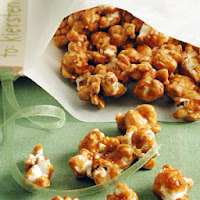 |
| Source: Nutrition and You |
In addition to lucrative NFL and NBA contracts, many professional athletes also land financially jaw-dropping product endorsement deals, many of which are for food and beverages. According to research published in the journal,
Pediatrics, players such as Peyton Manning and LeBron James earn at least $5 million annually from product endorsements. For food marketers, these athlete endorsements are pure gold as they create positive associations with their brand. In other words, if superstar
Peyton Manning drinks the beverage, it must be super good for you.
Unfortunately, these food product endorsements are not typically for eating apples or chugging milk. To investigate the type of foods and beverages that were being endorsed by athletes, researchers at Yale University viewed the advertisements of the top 100 most prominent professional athletes and calculated the number of food and beverage ads being endorsed by these athletes. They then analyzed the nutritional quality of each product being advertised.
According to their research, almost 80 percent of the 62 food products being endorsed were unhealthy and over 90 percent of the 46 beverages had all of their calories coming from sugar. Through the use of Nielsen data, which can determine television advertisements by age, the researchers also calculated that adolescents, 12 to 17 years of age, watched the most athlete-endorsed food commercials, more than adults.
When the majority of the food products that are being endorsed by athletes are considered junk foods such as soft drinks, this sends mixed messages to the public about diet and fitness, especially to children. “Professional athletes endorse a lot of foods and beverages and most are unhealthy, which is a concern for a country struggling with obesity,” claims Marie Braggs, a doctoral student at Yale University and lead author of the study. “The message being delivered by these athletes goes against what parents are trying to feed their kids to be healthy."
It also goes against the
Fuel Up to Play 60 Program, which is an in-school nutrition and physical activity program launched by the NFL and the National Dairy Council in collaboration with the USDA. The program encourages today's youth to lead healthier lives by consuming nutrient-rich foods and to get at least 60 minutes of physical activity daily.
Professional athletes are in an unique position to influence healthy food choices among our youth. While unhealthy food and beverage endorsements by athletes are lucrative, being a good media role model is, well,
priceless. I long for the time when the only athlete-endorsed food and beverage ads that are targeted to children are of athletes refueling their post-game bodies with a healthy, well-balanced meal and chasing it with skim milk.
Follow Joan on Twitter at: joansalgeblake







